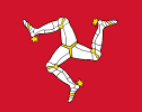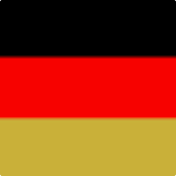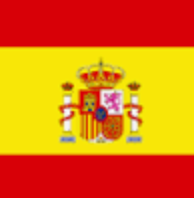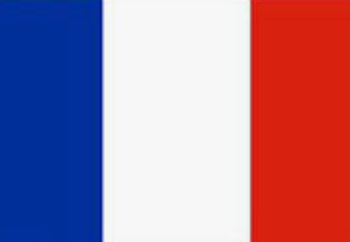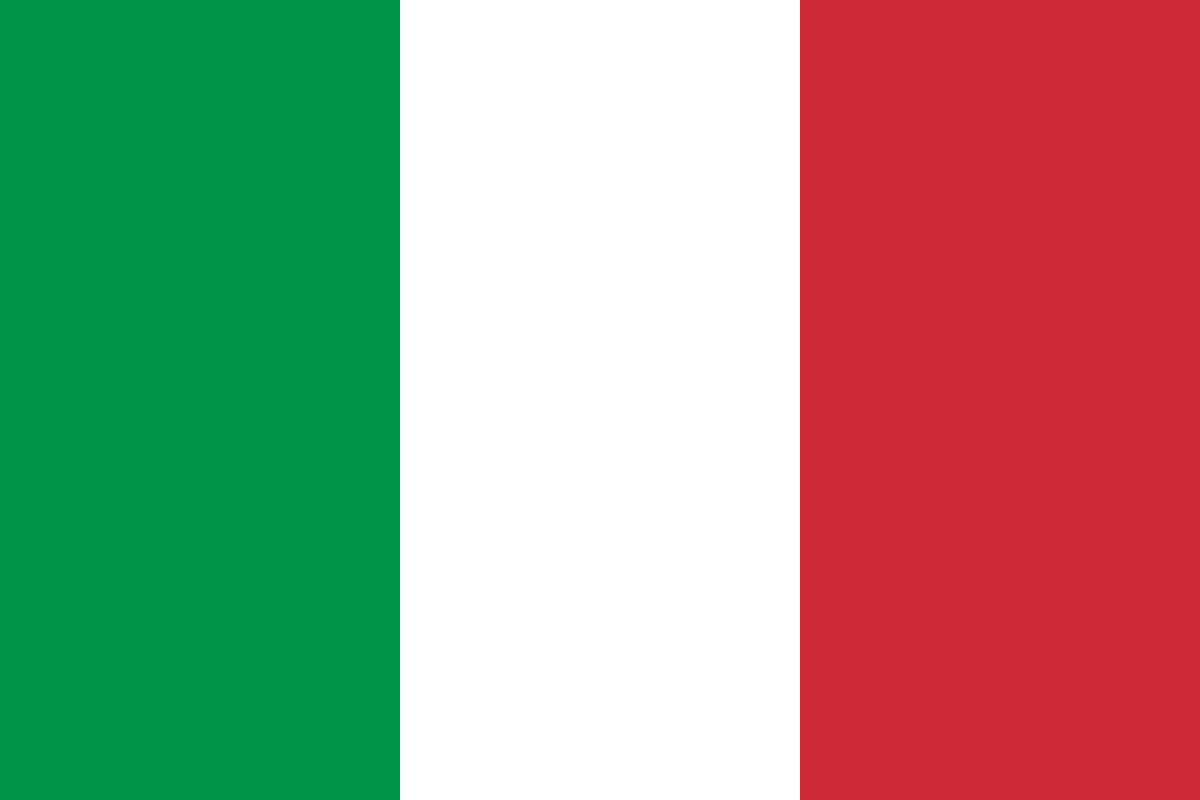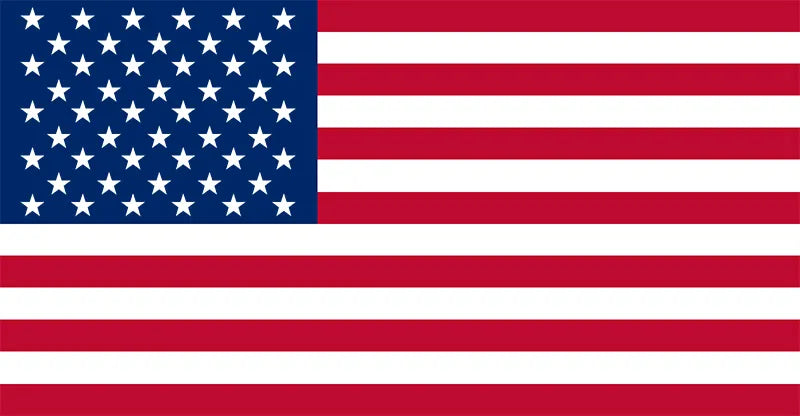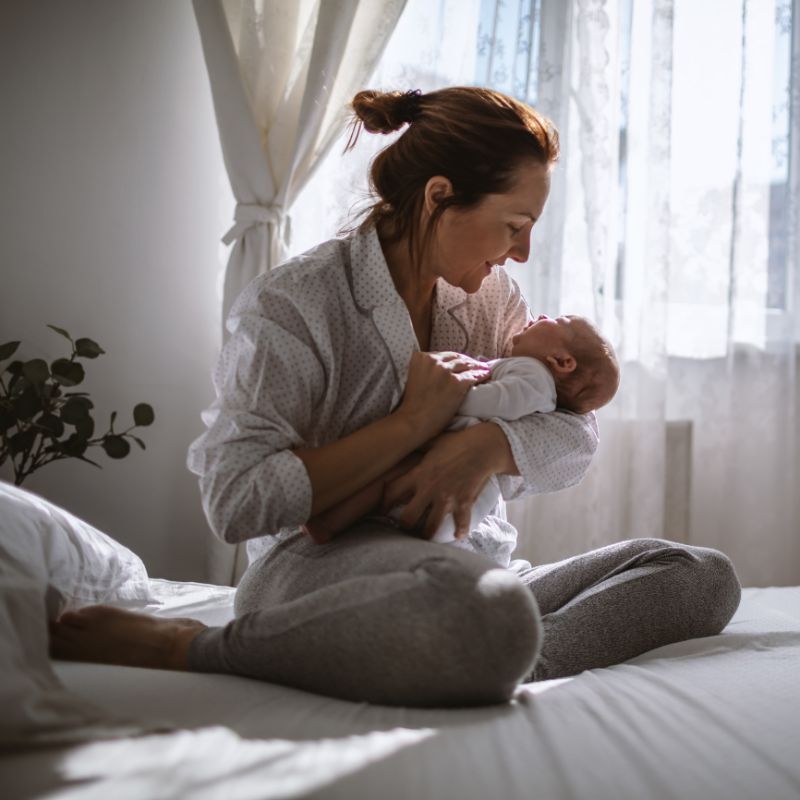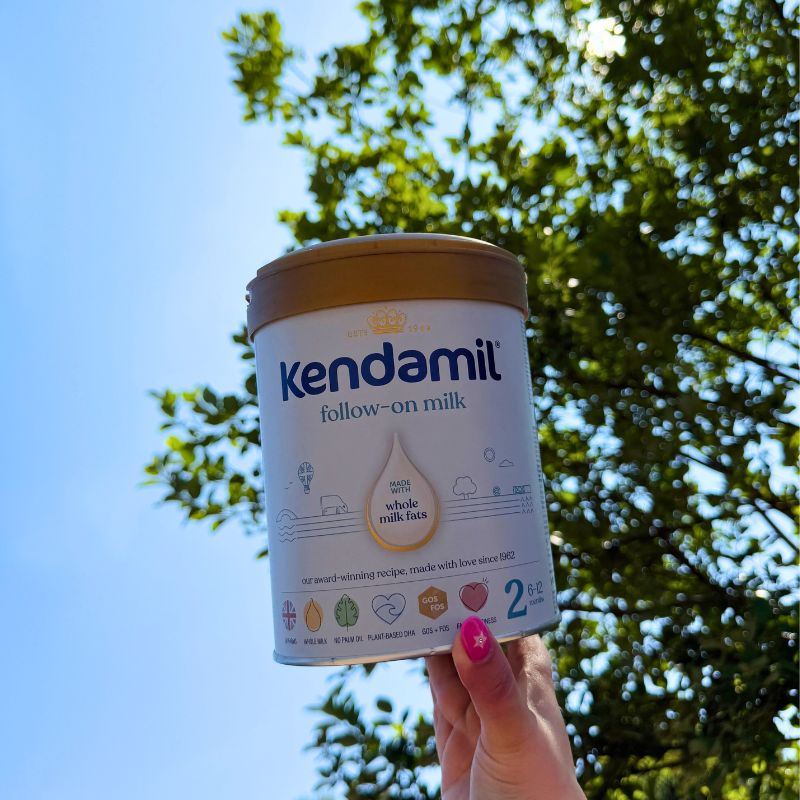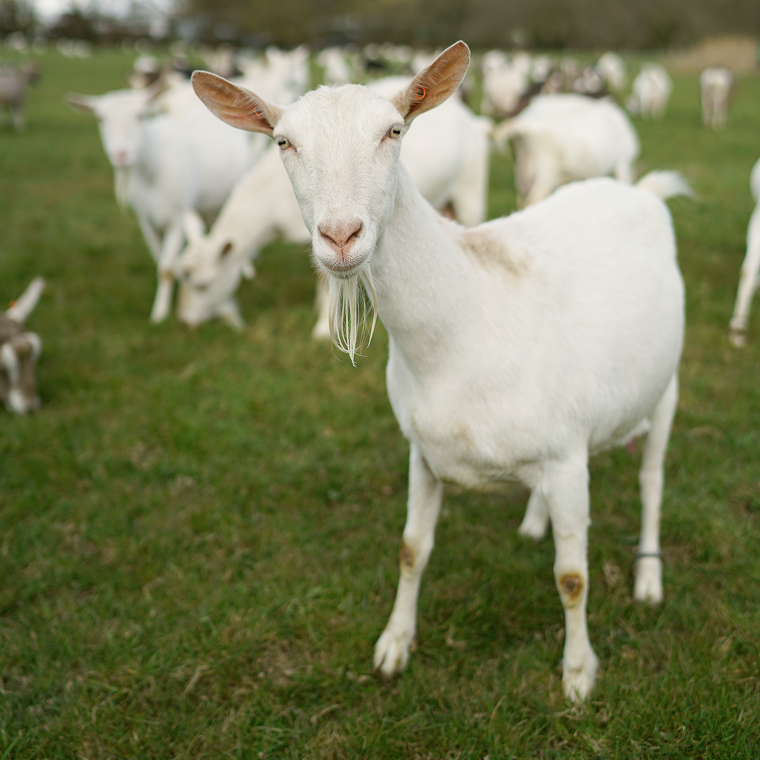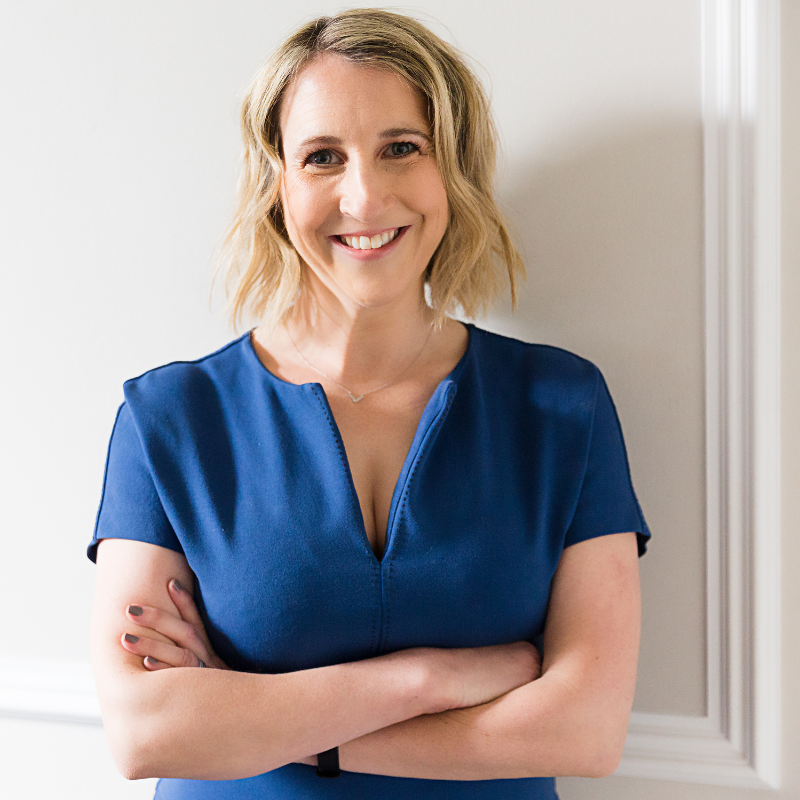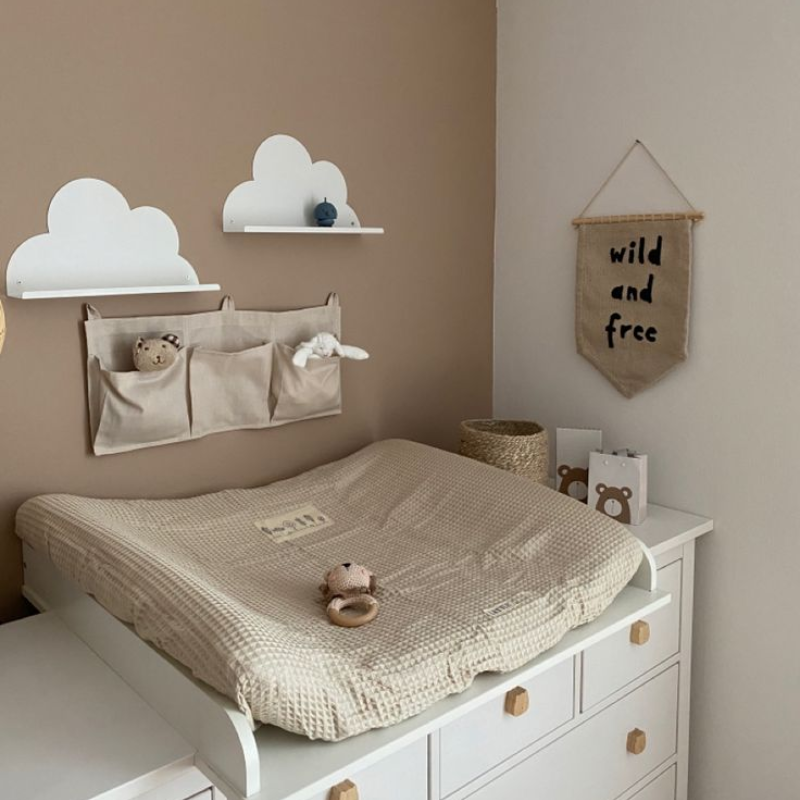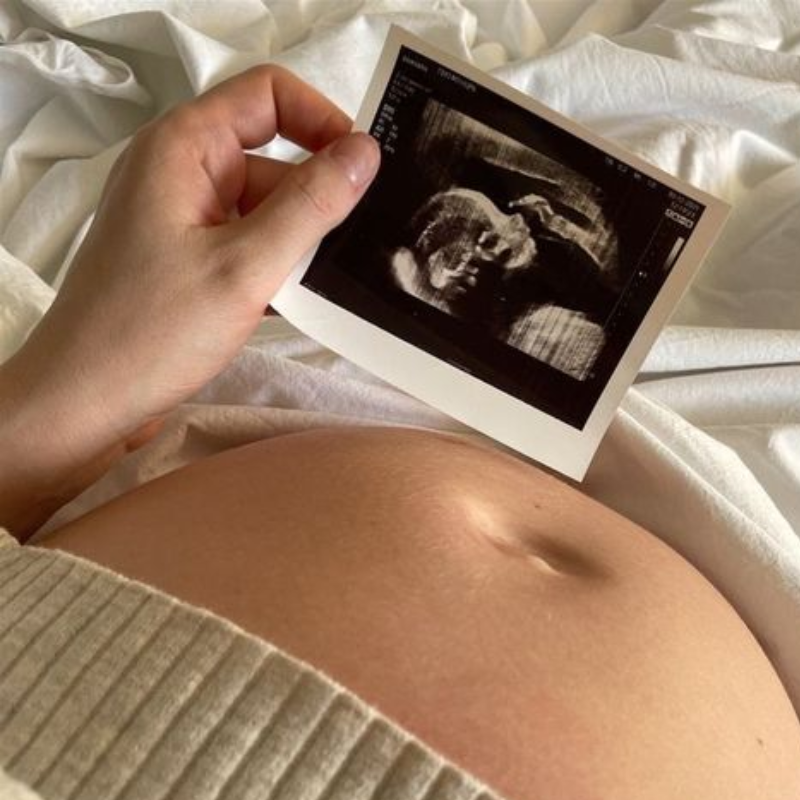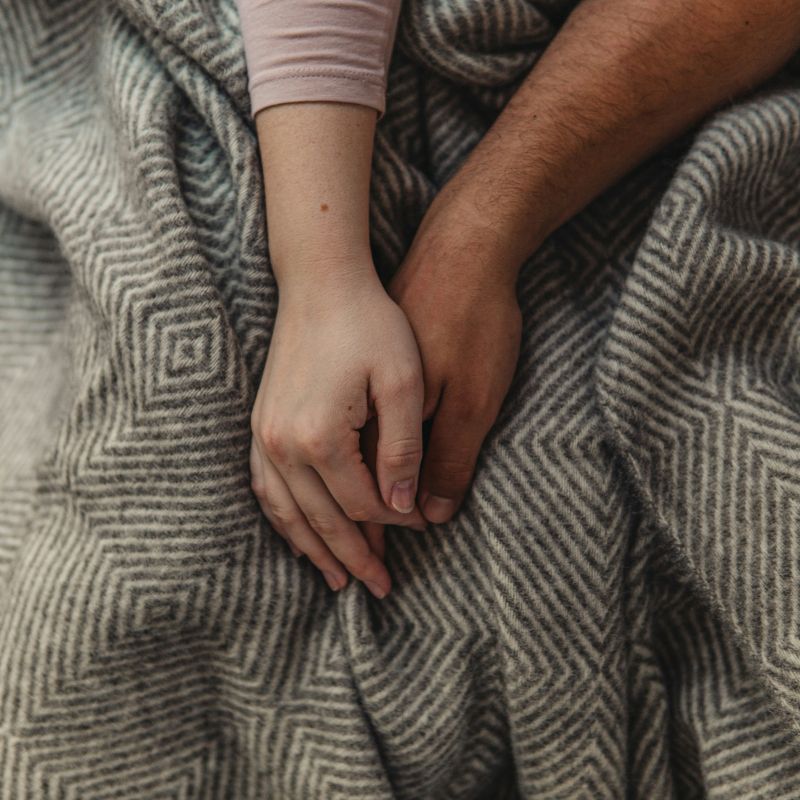Little babies come with lots of stuff, and as you start to pull together your baby essentials list, you soon start to realise there’s more to prepare than you thought. We’ll help you navigate through this list of newborn essentials, breaking it down into what is necessary, what’s a nice-to-have and what baby gear to steer clear of for safety reasons.
Large baby gear recommendations
From prams, to the cot, to the car seat, these are your largest and most likely the most expensive items on your list. They’re also some of the most important items when it comes to the safety of your baby, so don’t rush when weighing up your options on these items.
The essentials:
- Moses basket, bassinet or cot: depending on your preference, the safest place for a newborn to sleep is in their own bed. This should be completely clear with a firm, flat, waterproof mattress. If you live in a flat, a smaller, more compact bassinet that you can wheel from room-to-room is a great idea, such as this SnuzPod Studio Bedside Crib. If you’re lucky on space and can fit a full size cot into your bedroom, then we’d recommend a cot that will convert from a newborn bed to a toddler bed - You’ll get more for your money. You can also get cot top changers such as these ones from Tutti Bambini. Moses baskets are a great idea for people who have chosen to get baby a cot for the bedroom upstairs, as it allows you to have another safe sleep space downstairs - moses baskets are not expensive and you can get them for around £80. Had a c-section or planning to exclusively breastfeed? Then a bedside crib might be your best option - these allow you to fold down the side so you can almost slide baby out of their bed and into yours, without having to lean and bend over repeatedly.
- Pram with changing bag: with so many prams to choose from, it can seem really daunting. Choose based on your lifestyle. Live in a city? A more compact pram such as the Babyzen YoYo might make it easier to navigate narrow streets and public transport. Live in the countryside and love your nature walks? Then an all-terrain pushchair might be more suitable for you - check out Made For Mums top 10 all-terrain prams here. When it comes to choosing a changing bag, make sure it fits under the pram you’ve chosen - you can also opt for a backpack style if you plan to use both a pram and a baby carrier.
- Car seat: understanding what car seat you need can feel very overwhelming. We suggest reading through this NHS guide on car seat safety first. There are many retailers who will also offer support and guidance on choosing the right car seat for your model of car and the weight/ height of your baby, including offering car fitting demonstrations; John Lewis and Halfords offer this service with an in-store expert who is trained to offer correct advice. Second-hand car seats are not recommended.
- Baby bouncer/rocker: once baby starts to be a bit more alert and is awake for longer periods of time, you can start to put them into a baby bouncer/ rocker up until the age of 6 months, or when they can sit up unaccompanied. Just be mindful that if they fall asleep, their designated safe sleeping space ie. their cot or bassinet is the best place for them to nap, not their bouncer.
- Playmats and play gyms: you will need a flat, comfortable surface where baby can practice their tummy time each day, ideally this should be kept clean and only used for baby. You don’t need to buy a super expensive or flashy play-gym, even a simple playmat such as this one from John Lewis will do the trick. Baby prefers to look at your face than dangling toys anyway.
Nice-to-have:
- Sling and/or baby carrier: these are not absolutely necessary but great for those who need their hands-free a bit more. Slings can be a great way for baby to have those contact naps while you tend to other children or need your hands for other activities. Baby carriers can be a great option for when you’re travelling. For baby’s safety, do make sure you’re aware of safety advice when it comes to using slings and carriers.
- Changing table: these can be very expensive and aren’t always a total necessity - if you are getting a changing table, opt for one that has drawers with it and converts to a chest of drawers, such as this one.
What to avoid:
- Baby walkers: health professionals do not recommend baby walkers as they pose various risks such as falling down stairs, and reaching for objects they shouldn’t. Some studies have also shown they don’t encourage development and may have a reverse effect on walking and standing.
Baby clothes and outfits
Now we have the boring bits out the way, we can move onto the cute stuff - baby clothes. Although you can be tempted to buy endless adorable onesies and baby accessories, a lot of these things are just not needed and likely won’t get used. You can check out the NHS guide to dressing your newborn here. Let’s walk through the essentials:
The essentials:
- Sleepsuits: for the first 3 months, baby will most likely be asleep more than they’re awake. So a set of 7 sleepsuits (depending on how often you do your laundry) will be enough to cover you. Pro tip: opt for zip up sleepsuits that have built in scratch mitts, they’re much easier to work with during the nighttime changes.
- Bodysuits: you’ll need about 7 of these too. Buy the right sleeve length based on the season your baby will be born in. If they’re a summer baby, opt for short sleeves. If they’re a winter baby, opt for long sleeves. Pro tip: buy your bodysuits and sleepsuits in a similar colour palette to avoid multiple wash loads.
- Baby accessories hat & socks: for summer babies, you’ll need a wide-brim sun hat to protect them from the sun, and for winter babies, you’ll need a soft winter hat to keep them warm. You’ll also need socks to keep their feet warm, but in the summer months, you can let them explore barefoot.
- Pramsuit: when you’re taking baby out and about, you’ll need a pramsuit to keep them warm - again, depending on the season your baby will be born in, you can buy an extra cuddly one or a more lightweight one. For summer babies, a blanket might be enough on hot days.
- Cardigan: cardigans are much easier to take on and off a newborn, and are a great option for adding an extra layer if baby is born in the winter months.
Nice-to-have:
- Cute outfits: not really necessary, but who can resist a cute outfit. If you’re on a budget, 2-3 outfits would be enough that you can rotate for occasions when you’re out the house with baby, or meeting family and friends.
What to avoid:
- Synthetic fibres: opt for cotton or natural materials for baby, their skin is so delicate and synthetic materials can cause skin irritations.
- Embellished clothing: clothing with beads, threads, embellishments, cords etc should be avoided on baby clothing as it can be a choking and strangulation hazard.
- Baby shoes: are completely useless as baby won’t be walking until they’re over 12 months. Save your money, you’ll soon be buying them plenty of shoes.
Sleeping essentials
When it comes to sleep essentials, safety is key. We would always recommend following The Lullaby Trust and NHS when it comes to recommendations on sleep products and guidance on safe sleep practice.
The essentials:
- Firm, flat, waterproof mattress: a clear and flat cot is best for baby’s safety. You can also buy waterproof mattress covers.
- Fitted cotton cot sheets: baby’s bed sheets should be lightweight, fitted and ideally cotton.
- Sleep bag or swaddle muslin: If choosing to use a sleep bag, you can choose the tog based on the season your baby will be born, as well as their size. For summer babies, 0.5-1 tog will likely be enough, whereas babies born in winter might need a 2.5 tog sleeping bag. When it comes to swaddling, you can use a large muslin cloth or thin cot sheet. Check out The Lullaby Trust’s safety guide on swaddling here. It is recommended to stop swaddling when baby can roll over.
Nice-to-have:
- Room thermometer: the optimum temperature for the room baby is sleeping in is 16-20 degrees. A room thermometer can help you track this, but is not absolutely necessary. The NHS cover temperature regulation here, so you know how to track if baby is too hot or cold.
- Night light: again, not a necessity, but can help during those night feeds and nighttime nappy changes.
- Baby monitor: when baby is under 6 months they should be sleeping in the same room as you, so this is not really a necessary item when they’re newborn. As they get older you may wish to invest in a baby monitor.
What to avoid:
- Baby bumpers, pillows and duvets: these are not recommended by health experts as they can increase risk of accidents and SIDS.
- Sleeping nest or pods: again, not recommended by experts as they can increase risk of SIDS.
Check out The Lullaby Trust’s guide on How To Choose Baby Sleeping Products here.
Bath time and changing essentials
Newborn babies require a lot of nappy changes, sometimes up to 12 a day when they’re really little. So being well equipped with the right nappy changing essentials is key.
The essentials:
- Nappies: you’ll need lots of these in the early days, expect that you’ll need around 10-12 nappies per day. We recommend buying in bulk quantities. There are many nappy brands that offer monthly subscriptions now, including Amazon, so you don’t need to worry about running out of nappies. Wondering what size you’ll need? Check out Pampers nappy size guide here. If you’re contemplating reusable nappies then check out the Nappy Lady, who offers information on all the reusable nappy brands in the UK, as well as info about schemes to help get you started.
- Baby changing mat: you’ll be using this everyday all day, so we recommend getting one that can easily be wiped clean. You can also use a towel instead and change this regularly.
- Nappy rash cream: there are many to choose from, and definitely worth having handy for if and when baby gets a little bit of nappy rash. Make sure baby is changed often to avoid nappy rash.
- Nappy sacks: for pooey nappies, scented nappy sacks can hold off bad smells. You can also get biodegradable nappy sacks.
- Cotton wool/ baby wipes: for the first few weeks it is recommended to use cotton wool and warm water instead of baby wipes. If using baby wipes, opt for ones that are free from fragrance and alcohol.
- Towel: you’ll need a couple of towels for bath time. Some babies also prefer to be wrapped in a towel or muslin during their bath.
- Nail scissors: you’ll be surprised how long their nails will grow - get ones with curved ends designed for using on baby nails. Pro tip: if baby wiggles or cries when you try to cut their nails, you can trim them while they nap.
Nice-to-have:
- Nappy bin: great for those who are changing nappies upstairs far from the outside bin. However, these are not a necessity, and you can throw pooey nappies into the outside bin.
- Baby bath: these can be fairly pricey and take up space. The NHS actually only recommends bathing a newborn 2-3 times a week. If you have a good size kitchen or utility sink, and can make sure this room is nice and warm, baby can bathe here. Just make sure your sink is clean before baby takes a bath. You can also use a washing up bowl.
- Bath thermometer: again, not totally needed, but can be used to check the water is between 37-38 degrees. To check baby's bath water is the perfect temperature without a thermometer, simply dip your elbow into the water and it should feel the same as your body temp.
- Nappy caddy: a great way to keep all your nappy changing items together in one place. But you can easily use any other storage basket you have at home also.
What to avoid:
- Baby soap/ bubble bath: for the first month, it is recommended to use water alone to bathe baby due to their sensitive skin.
- Oils and lotions: should be avoided until baby is at least 1 month old, again due to their sensitive skin.
- Bath seat: these are not recommended by The Royal Society for the Prevention of Accidents due to the risk of baby drowning.
Having a baby is an exciting time, as shopping for their little bits can really make it all seem so real! It can also feel a bit overwhelming in terms of what to get and what to avoid, so we hope this guide has been helpful.
Why not check out our other guide on How To Navigate The Newborn Phase here.
